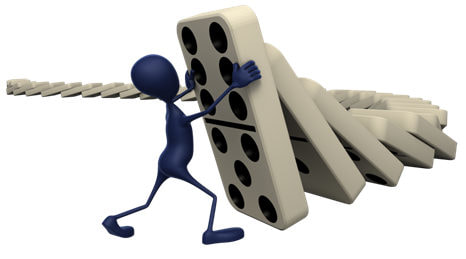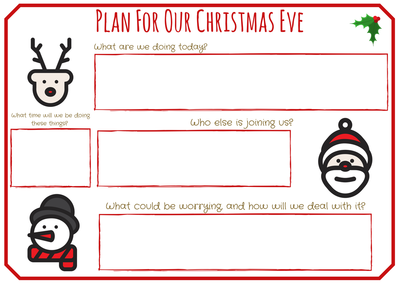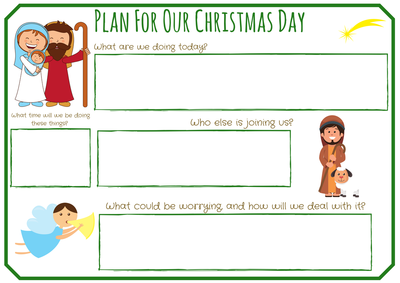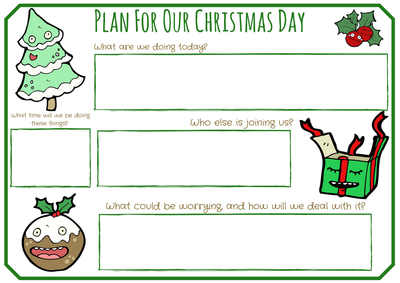|
It happened yesterday, one of those parenting moments you completely dread: the news that your child has punched another.
It fills you with so many complex emotions and feelings from anxiety, to confirmation of that nagging doubt that you're actually completely failing in your role, to concern for the other child and their parents, to ten years in the future and visions of your angelic blonde-haired little dude smashing up the local bus shelter, taking drugs, and generally behaving like a thug. Your thoughts leap around but really that's your grown-up baggage clattering to the floor, all those What Ifs. However, what you need to be able to take action are the facts. Usually, if something has happened during the school day one of the staff will speak with parents/carers at home time, however yesterday there was no such conversation and it wasn't until we had nearly walked all the way home that one of my twins disclosed what the other had done. By that time, it was too late to speak with the school to find out what had happened. No facts to be found there, then. There was no note in the book bag either. And, when the boys had first barrelled out of the classroom, and all through the first part of our walk home, they were brimming with the good things of the day: both seemed happy and tired and full of the letters they had learned. So hearing a concerning tale is something of a dilemma because the report of a newly 5 year old kid isn't exactly reliable, and there's no immediate opportunity to speak to the school. What to do? I sat down with the boys on a bench, and keeping my voice as curious as possible - no shade of disapproval or anger - asked my son what had happened. He explained that another child had hit him, so he hit him back. I asked how this had come to a grown-up's attention and he explained that a teacher had seen him hit the boy; I asked if the grown-up had seen the other kid hit him, and he said no. That sounded reasonable, but it's not necessarily fact: my son sometimes struggles to tell the difference between an accident and an intended act of aggression, so how could I be sure that the other child had hit him on purpose? The only fact before me was that my son looked very worried, filled with shame, and was really struggling with the school's sanction, which was reported by him as being the loss of his treasured play time the next day. I went over - as I have done a million times as my two sons do fight a lot when tired and dysregulated - that it's not okay to hit other people for any reason. We talked about what my son could do to put things right with the other child using his skills, and he decided he would draw the child a picture as an apology; my son often uses drawing as a tool for calm - the repetitive movement of pencil across paper, coupled with the use of areas of the brain above those responsible for flight/fight/freeze, is very helpful to him. We also agreed that he would not be able to use his games console for his usual one-hour after school session. Clearly something had happened, and I did not doubt that my son had hit someone, so there would need to be a consequence at home not as a 'punishment' exactly - I did not know the facts, and if my son had been hit first then he had a right to feel aggrieved - but because I felt the numbing that games consoles cause, coupled with his already intense emotions, would likely result in all his frustration and patience being directed into his play...which would mean his brother would end up being thumped and kicked, and his brain being unable to think or coordinate his body sufficiently to play the games thus resulting in a complete meltdown. Instead, we had milk and biscuits at the table, watched a documentary, and had lots of cuddles. This morning, he was fine getting ready for school, fine on our walk to school, but once the gate opened to his classroom his brain flooded and his freeze response kicked in: he couldn't walk, couldn't hold his bags, couldn't lift his head. Now the children have been at school for a term, parents/carers aren't supposed to come into the classroom anymore to help their kids to settle, but my son wasn't going to go in without my support, so I led him in. As I spoke to the teaching assistant, my son skirted the room keeping his eyes on me at all times and his back to the wall as he stowed his lunchbox, coat, and book bag away; clearly he was very frightened. I asked about what had happened - the details of which aren't important, but there was an altercation and the other child is not blameless, and that's being dealt with today. Then, the TA said: I don't know what got into them all yesterday, all the children were as high as kites and we had lots of issues. It was then that I knew exactly what had happened. Yesterday at school, the children received their flu nasal sprays and, as a result, had missed PE. A serious and unusual disruption to routine had occurred, not to mention the loss of an outlet for releasing lots of energy, and the opportunity for movement to calm immature brains, and none of the adults in the school had anticipated that there would likely be a consequence for this. Children's behaviour is communication, and usually it communicates what stage of development their brains are at, and how anxious or dysregulated they are. The fact that ALL the children were behaving out of character shows how young their brains are, not that it should have needed showing: these children are 4 or 5 years old, and changes to routine - and especially the new experience of receiving a medical intervention for the first time without the presence of a parent/carer - must have been very worrying for some and, even for those who seemed to be taking it in their stride, the new and different experience and break in routine inevitably disrupts feelings of security, ability to anticipate, separation anxiety, and so on. Those who were 'high as kites' may have felt and looked elated, but they're still nervous systems out of balance: it is unusual behaviour for most of the children, and it has a very traceable cause. My son has considerable difficulties processing experiences, especially emotional or social ones. When he is dysregulated he will either go into fight or freeze mode. He has recently had surgery and contracted very bad chicken pox at the same time. This has left him with nightmares, and he also now panics at anything medical: plasters, Calpol, cold compresses for bumps, having his temperature taken, etc. School have been made aware of this. For him, having his flu spray must have been really tough. I'm sure peer pressure got him through, but the adrenaline and triggers to his limbic system - his emotional memories, and where traumas are stored - must have been huge...and then, no PE to let it all out safely! That doesn't leave a very young child with an immature and easily overwhelmed brain with many resources to cope. It is therefore no wonder that in the unstructured space of playtime, when so many other children were similarly dysregulated, that one child's fight reflex met or triggered my son's fight reflex. Now, before you think this is about letting my son off the hook for his behaviour, I can categorically state that it isn't: it's never okay to hurt anyone, no matter how bad you feel. This is about understanding truly what happened: it wasn't just kids being aggressive and hurting each other, it was kids really struggling to calm their brains, and a lack of adult planning to help them cope with their day. The children's uncharacteristic behaviour was a massive Red Flag about brains in need, but no adult anticipated this very predictable outcome could happen, and no one spotted it when it did actually happen either: the kids are to blame, they have been naughty. Well, sort of: they have hurt each other and that needs dealing with, but actually it's grown-up's gaps in teaching knowledge and common sense that toppled the first domino long before the hitting incident occured - when you have a known break in routine coming up, how do you plan to teach children strategies to cope with it alongside putting in place your own management measures to support children through a disruption? How do you help, support, and encourage children to manage their personal risks? This is an opportunity to rehearse some key life skills! A trauma and neuroscience informed staff team would have anticipated that the children might find the unusual day hard, and would have planned ahead - especially for those like my son who really struggle with change and processing - to ensure that there were quiet and/or sensory activities available during playtime, extra supervision and support on the playground, adults who were able to facilitate and run group games in the playground to engage children and help them regulate, and to at least check in and support those children who would be most likely to struggle. Had my son had a calming experience after his flu spray - not necessarily on a one-to-one basis but in a small group, even reading a storybook together would have helped - 20 minutes to chalk pictures on the playground tarmac, or the thrill of playing a big group game, he would not have hit another child, even if they had hit him first. I am not surprised the incident has happened: it was predictable, if not inevitable. I feel very sad for both children that their needs weren't met and, as a result, both were hurt. That sucks. And while both will have to take their lumps - my son will only lose 5 minutes of play time today, not the whole thing - some responsibility also lies with their teachers and support staff. As for my son, when I had finished speaking with the TA, he was sitting on the carpet with the other children getting ready to begin his day, and his shoulders were hunched up, his head hung down, and there were tears in his eyes. I explained to the TA that he was struggling to cope with the enormity of what had happened to him emotionally and socially - this is a big drama in the little world of a young child - and she said she would spend some time with him this morning rebuilding the bridges to help him cope with his anxious feelings, to repair the relationship with staff, and to make sure things were okay between him and the other child too. The other child will also be spoken with today about his behaviour. We shall see what the day brings, but it was very hard leaving him there knowing how dreadful he feels. I hope his brain calms as he settles back into familiar routine - and I'm sending him every loving and calming thought I can muster - but until I get to the school gates this afternoon I won't know, I have to just trust. What I do know is that if the grown-ups at school can't help him regulate today that he may lash out again, or he'll save it for when he gets home and we'll have the meltdown here. I'm planning ahead: a bath with lavender, candles, and lots of mouldable foam as soon as he gets in the door. A cup of tea. Cuddles. And then, when he's regulated, we will talk it all through. And then we start over again tomorrow.
1 Comment
The Day Planner sheets I have to accompany some of my shows are always very popular, so I've made some updated seasonal versions in time for Christmas. So much of the anxiety and stress of Christmas can be reduced if you plan well in advance with your children so they know what's happening, when, who with, why, and what the expectations will be - I'll write more about this in some future blog posts. But, in the meantime, here are the seasonal Day Planners: one for Christmas Eve, and two different designs for Christmas Day (They're here both as graphics and as downloadable Pdfs).
|
AuthorArticles, resources and ideas from Julia Archives
January 2020
Categories |
||||||||||||||||||




 RSS Feed
RSS Feed